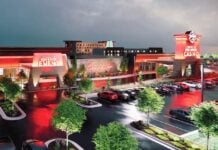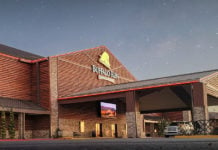by Kris Nixon
During the COVID pandemic, tribal properties have faced unprecedented times in terms of supply chain, staffing, lockdowns, and customer relations. There is no longer an endless supply of goods, labor, customers, energy and other necessary things needed to run a profitable casino. Casino operators must now ration services and goods to meet the needs of our business and our customers. The decisions on what are cut from the casino is not easy to make, and care must be taken in those decisions to not erode profitability, which is not always immediately noticed on the income statement. For example, keeping operations open while understaffed might show positive net income now but lessen the customer experience and reduce profitability in future periods. The following outlines several considerations on operations and how to manage the decision-making process.
Food and Beverage Outlets
In general, tribal casinos do not run profitable food and beverage centers as they are there to support the gaming floor by attracting people to the casino and keeping people in the casino for a longer time period. Most casinos try to minimize the loss as opposed to generate a profit. That does not mean customer service or revenues should be overlooked. Food and beverage centers have been hit with higher costs of food, then add a labor shortage on top and it makes for a difficult time keeping customers happy. Throughout COVID, casinos have tried to balance these issues with shorter hours or outright closing these venues, and many are still not open today.
When deciding how to run food and beverage outlets, the casino must decide the value it provides to the gaming floor. If the venue is not necessary to attract people to the casino, such as a low volume, fine dining restaurant, then it might make sense to keep the venue closed. Whereas a quick service deli or cafe might be necessary to lengthen the stay of customers, so the casino must then think about how to serve customers amid staffing shortages. One option would be limiting the hours to just lunch and dinner. Another option is to have a system in place to manage customers waiting, so people can be put on a list to be seated and go back to the gaming floor until the restaurant has room.
Food shortages and price increases are other challenges. No customer is happy when they go to order and their favorite dish is not available. The best recommendation is to be up front with items that are not available that night – tell the customer as they are seated rather than wait until the order. For food costs, the casino must weigh the balance between food prices, demand for food, and acceptable losses. The temptation is to raise prices, but this can actually have the opposite effect and reduce revenues due to lower demand. Every casino has a different customer base, so there might be some trial and error to determine the right pricing strategy. Regardless, every restaurant should have meal cards to track the price and true cost of each item on the menu so the casino understands the nature of their food costs and can compare the expected cost to the actual.
Other Auxiliary Revenue Centers
Casinos often have other revenue centers to support the gaming operation – hotels, gas stations, golf courses, RV parks, bowling alleys, etc. The value of each of these should be evaluated in determining whether they should remain open and the best course of action to take during the pandemic.
In general, hotels and RV parks require relatively few employees to run and lengthen the stay of gamblers. Casinos should have tracking of customers and average win per day for each hotel room /RV spot sold, and the cost to turn a room. While a comped hotel room is a cost to the gaming or marketing department, this is revenue to the property as a whole. For example, if a casino gives away a $150 room, many stop the analysis there with a loss. But if the cost to turn a room is tracked, that might be $50 a night depending on wages in the area and the amenities provided in the room. If the average customer who stays, the casino has a net win of $250, the casino actually makes $200 on that free room. This analysis should be made when determining staffing resources, as some casinos have kept rooms closed because they do not have enough staffing to clean the rooms. If a casino makes $200 for every room given away, that casino should consider whether to reallocate staffing from other departments to help run the hotel and keep rooms open.
Golf courses, bowling alleys, and other revenue centers that casinos operate should also be evaluated for their effectiveness and support for the gaming floor. The casino should determine the frequency at which customers visit those venues and also gamble in the casino. Many people come to play golf, go bowling, watch a movie, etc., and never step on the gaming floor. In those instances, it might make sense to close those operations and shift the resources to other revenue centers, such as the hotel. You should also keep in mind the cost to maintain the entity while closed and the cost to start the entity up when it makes financial sense. A golf course has a high barrier of reopening and cost to maintain even when closed, yet a bowling alley is generally easier to close and then reopen.
The Gaming Floor
The gaming floor is the casino’s bread and butter, the entity that everything else is dependent on. Some casinos take the gaming floor for granted, meaning it is the most profitable entity, so management could get complacent and not continue to strive for extra revenues or reduced expenses. This course of action is a mistake as the benefit to the high profitability of the gaming floor is that it means the biggest gains can be made there.
Similar to the hotel and other outlets, customer/revenue tracking and managing expenses are of upmost importance. The casino should have detailed tracking on customers and direct free play and other marketing/customer incentive products for the highest revenue customers. There should also be considerations for what attracts customers to a property, as this varies widely within the industry based on the location of the
casino.
Even though a property might have a hard time maintaining staff, the casino must maintain customer service. Now that tribal gaming is a mature industry, competition is as strong as it ever has been, and a property needs to find a way to differentiate itself from other casinos in the region. Additionally, automation, such as kiosks, are another way to manage the customer experience. While there is a high up front cost, there might be a benefit over time due to lower costs in the future.
Conclusion
In each of the examples above, the main focus is about tracking actual revenues and expenses on a more granular level and customer service. Your property should focus on these items and utilize the information to make decisions on how to proceed during the pandemic. The other benefit is once these systems are in place, the casino will be set up to have greater success once the pandemic is over.
Kris Nixon is Chief Financial Officer of the Coeur d’Alene Tribe. He can be reached by calling (208) 686-1271 or email knixon@cdatribe-nsn.gov.
















































